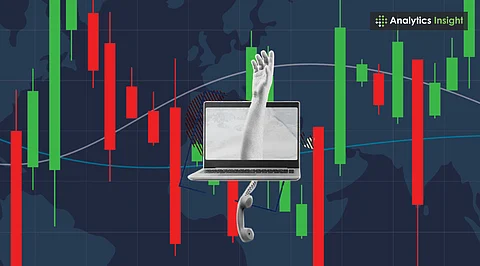

Emotional investing plays a real role in driving stock price movements.
Both positive and negative sentiment can forecast short-term market trends.
Understanding market psychology helps investors make informed trading decisions.
Emotions play a significant role in influencing the price of stocks. Emotions, such as fear, mood, and confidence, can drive the market up or bring it down. The behaviour of investors affects the buying and selling patterns in the market. Rumours also influence the emotions of investors when they invest money in stocks. The blog explains how emotions play a vital role in driving stock prices in the market.
Many experts believe that emotions and investor sentiment affect the prices of stocks. Emotions: Many Investors' sentiment refers to the attitude of investors toward a specific security. A positive mood among investors tends to increase the stock price. On the other hand, a negative mood may lead to a drop in the stock price.
Emotional investing can sometimes hurt investors. The sentiment of the investors led to the movement in the market. The sentiments can increase the stock's price in a bull market. On the other hand, the sentiments reduce the stock's price during a bear market.
Also read: ChatGPT Stock Price Today: Positive Investor Sentiment Ahead?
The connection between the market and market movement is very deep. The different types of moods, such as overconfidence, anxiety, and eagerness, affect market behaviour. Emotional responses lead to sharp rallies and quick sell-offs in the market. Some of the real-world examples in 2025 markets are:
Recently, in July 2025, high investor optimism drove the S&P 500 to a record high level. However, some analysts recommended that this pattern may lead to a correction of up to 15% due to recklessness.
The trading volume for declining stocks increased from 39% to 44%. This pattern suggests that growing investor concerns lead to a drop in prices.
A survey revealed that institutional cash levels decreased due to high investor optimism.
Traders who control their feelings often make great Trading Decisions. The different types of emotions are:
Investors often overestimate their ability to invest in the early stages of a profitable market. This behaviour may lead to higher stock prices.
Many people sell stocks at a high price and hold stocks at a low price. This is an example of fear of missing out and fear of admitting a mistake.
Traders often pick winners, which can lead to an increase in the stock's price. Sentiments also play a role in influencing bank decisions. The confidence of investors indicates an increasing market trend. Negative feelings, on the other hand, can lead to a decline in the stock price.
Traders must understand the emotional aspects of investing in stocks. Some important tips to follow are:
Traders can utilize various tools, such as news analysis and sentiment indexes, to track emotions.
Investors can manage their trading activities by using stop-losses to make informed decisions.
Also read: Memecoins and Market Liquidity: Are They Driving Retail Investor Sentiment?
Emotions influence the prices of stocks. Sentiments drive market behavior and affect stock movements. Individuals must understand Market psychology and make informed decisions when investing money. These trends are necessary to earn profits and control losses.
Recognizing emotional patterns in the market can help investors make more informed decisions. Staying grounded in data and strategy offers a stronger path to long-term success.
Join our WhatsApp Channel to get the latest news, exclusives and videos on WhatsApp
_____________
Disclaimer: Analytics Insight does not provide financial advice or guidance on cryptocurrencies and stocks. Also note that the cryptocurrencies mentioned/listed on the website could potentially be risky, i.e. designed to induce you to invest financial resources that may be lost forever and not be recoverable once investments are made. This article is provided for informational purposes and does not constitute investment advice. You are responsible for conducting your own research (DYOR) before making any investments. Read more about the financial risks involved here.
